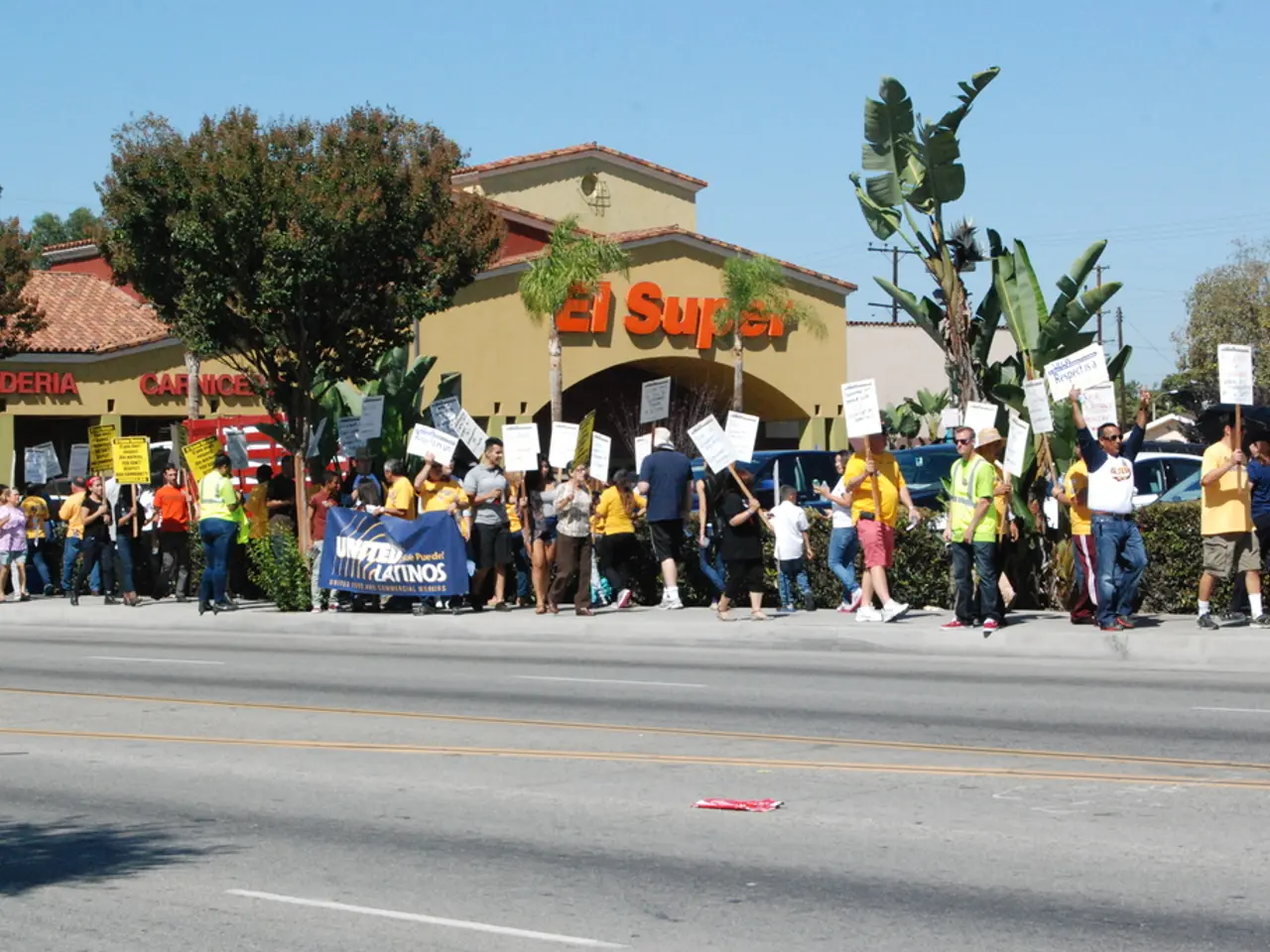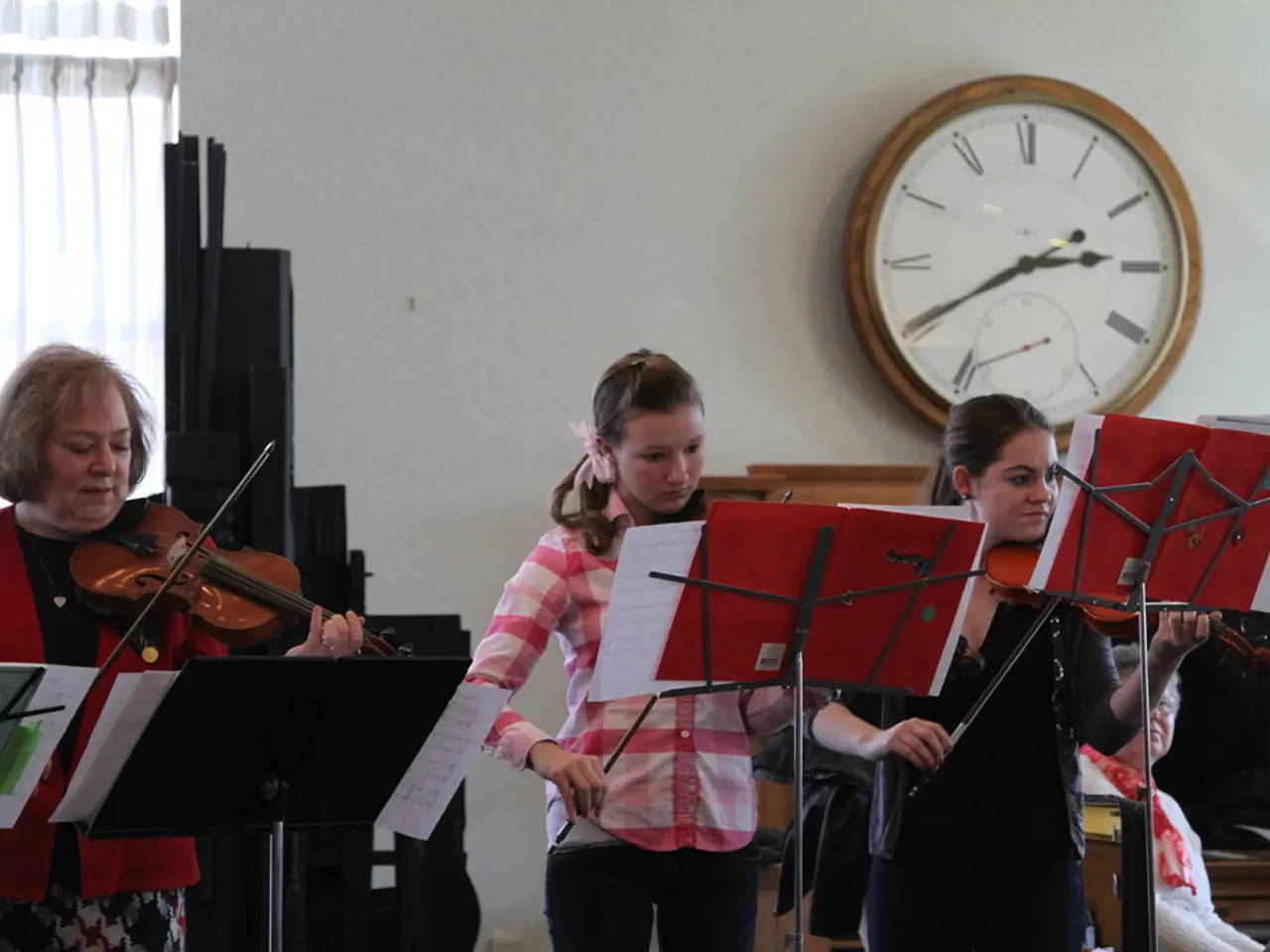Shift in Berlin's approach to the Gaza Conflict
In a significant political shift, Germany, under the leadership of Chancellor Friedrich Merz, has announced an indefinite suspension of all future military exports to Israel that could be used in the Gaza Strip. This decision comes in response to Israel's decision to escalate its military offensive in Gaza, including plans to take full military control of Gaza City.
The suspension targets new military equipment intended for deployment in Gaza, but does not explicitly halt already delivered arms. This policy is aimed at expressing deep concern about the worsening humanitarian toll on Gaza's civilian population and urging Israel to ensure humanitarian access.
While existing export licenses and deliveries prior to the suspension remain valid, the halt on new German military equipment could affect long-term procurement and maintenance support for German-made systems, potentially constraining Israeli military modernization and replenishment over time.
Historically, Germany has supplied armored vehicle engines used by the Israeli army in the conflict and German-made Sa’ar 6-class frigates, employed by the Israeli Navy in Gaza operations. However, these previously supplied goods are not affected by the current suspension.
Chancellor Merz has emphasized the need for comprehensive access for aid deliveries to the civilian population in Gaza. He also expressed his concern about the lack of visibility on how the goals of releasing hostages and achieving a ceasefire can be achieved due to the military escalation in the Gaza Strip.
The opposition in Germany, including the Green Party and the Left Party, believes the federal government's course change does not go far enough and calls for further steps, such as suspending the EU association agreement and recognizing Palestine.
Israeli Prime Minister Benjamin Netanyahu has made serious accusations against the German government, stating that it is rewarding the Islamic Hamas by halting arms exports to Israel. However, Merz has continued to emphasize Israel's right to self-defense.
The Israeli security cabinet has approved a plan to occupy the city of Gaza, which includes the disarmament of the Islamic Hamas, the return of all hostages, the demilitarization of the Gaza Strip, Israeli security control of the coastal area, and the establishment of a civilian administration not subject to Hamas or the Palestinian Authority.
The Central Council of Jews in Germany has criticized Merz's policy shift, stating it endangers Israel's existence. Meanwhile, Vice Chancellor Lars Klingbeil supports Merz's approach, calling for humanitarian aid to be let into Gaza as quickly and comprehensively as possible.
It remains unclear which specific military goods Germany will no longer deliver to Israel temporarily. The Israeli leadership has decided to escalate the fighting in the blockaded coastal strip of Gaza, and the duration and enforcement of the suspension will play a significant role in determining its practical impact.
- The suspension of German military exports, while not halting already delivered arms, is aimed at expressing concern about the escalating war-and-conflicts in Gaza, particularly the humanitarian toll on the civilian population.
- In addition to calling for the suspension of new military equipment, the opposition in Germany, including the Green Party and the Left Party, has proposed further steps such as suspending the EU association agreement and recognizing Palestine.
- The Israeli leadership's decision to escalate the fighting in Gaza, including plans for occupying the city of Gaza and disarming the Islamic Hamas, could potentially increase the incidence of crime-and-justice and accidents arising from the conflict.






